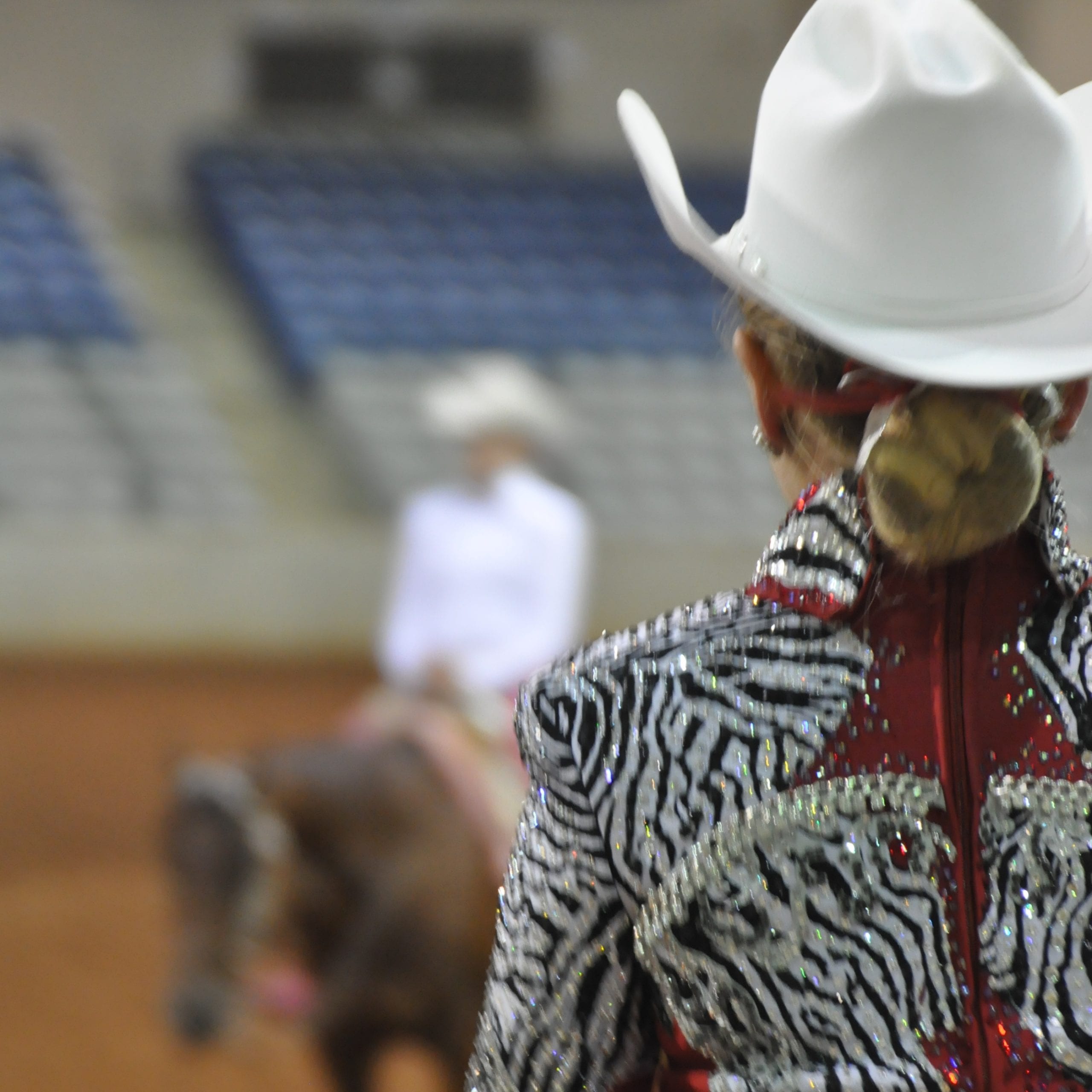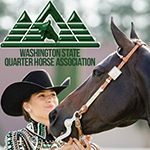With the year 2013 in the books, many riders have started to set goals for themselves and their horses for 2014. Some of these goals are title focused such as, “I want to be a Congress Champion” while others are skill based, “I want to teach my horse to do a flying lead change.” For me this year, I am working toward showing in a few new classes with my hunter gelding, so I went in search of answers on how to best add new classes to your horse’s resume.
Basics Come First
As a child, you had to learn to walk before you started to run, and the same philosophy applies to horses as well. Encouraging confidence in the basics will create a more confident athlete during the more advanced levels of skill and competition.
Starting to show in a new class starts with building skills for the
horse and rider team. AQHA World Champion Charlie Cole suggests,
“Putting a solid foundation on your horse in any class will pay off in
the long run. Your horse should know all the basics first–walk, trot
and lope with smooth cadence and transitions.”
Start Adding Slowly
Multiple AQHA World Champion and former All-Around Amateur, Karen Evans Mundy, starts adding skills into her daily routine from the beginning. “As soon as the basics are mastered, I start asking my horses basic maneuvers, and those are repeated during each ride, so that turns, sidepasses, equitation maneuvers and lead changes, become an everyday task…something that the horses are very comfortable doing. There isn’t a big set up or change, but it becomes just another step in an everyday ride. Then, you get to a horse show and everything is comfortable and familiar.”
Cole agrees saying, “Each day you ride just add parts of that class to your riding program that day.”
Professional Help
In a perfect world, we could all work in tandem with professional riders and coaches on a daily basis. In adding a new skill, their insight is going to be incomparable. As a working amateur, I always try to do as much as I can on my own, but sometimes it is best to let the expert put the foundation of new skills on from the beginning.
Cole suggests, “It’s probably best to let an expert on that class to start your horse, but not everyone has that option and many riders are capable of doing it themselves. I would suggest riding with someone who is experienced in the new class or watching videos that teach that particular class.”
Cole’s advice is spot on and I am in agreement, especially when taking the next steps in adding an event such as pleasure driving to my horse’s resume. I grew up driving multi-horse hitches with my grandfather and harnessing up ponies by myself, so pleasure driving isn’t intimidating. My father has also started several horses in driving, but having a rock solid foundation in this sometimes tricky event was very important to me. So, sending him to a professional program where he could be in the environment and having training on a daily basis was the fastest way to reach my goals.
Looking for more information, I asked AQHA World Champion Pleasure Driver, Kevin Dukes, if I could start ground driving and what else I should be doing before my horse makes the big move. Kevin recommended, “Start slow and if anything upsets him, just back off.” I didn’t want to create a problem for the professional, but if I could get him further along before he arrived at the farm, then, maybe I could get even more value for my budget. So, Kevin, Karen and I set out a plan for what we felt my horse should accomplish before going to “camp”!
If you are planning on sending a horse to “get a lead change”, “start in trail”, or “start on cattle”, ask the professional what you can work on before they arrive. Often times, they already have exercises and skills that can help them when they receive your horse.
Show Slowly
I am always amazed when I read advertisements, articles and Facebook mentions that says, “first under all three judges, and our first time to show.” I think, where did the horse get all of its skill and experience? The answer is at home and at shows….just not in the show pen. Cole recommends going into the show arena only, “when you can solidly, and almost mistake-free perform the new class at home or in the practice pen at the shows.”
Reasonable Expectations
As competitors we are all used to setting new goals and working hard to achieve them, but what happens when our ambition steps in front of the learning process. Cole reminds us that, “taking short cuts or rushing will show up in the show pen in poor performances.” And the most common mistakes are “rushing to show before the horse is ready and setting expectations too high for success.”
But, you do have to start somewhere, Mundy says, “You are gonna to have to give it a try sometime, you aren’t going to be a world champion just riding at home.”
So, set new goals, add classes to your horse’s resume, and get out there and try something new this year. At the same time, be thoughtful to your horse and its training and the results will be better than expected given the right amount of time, professional help and patience.








